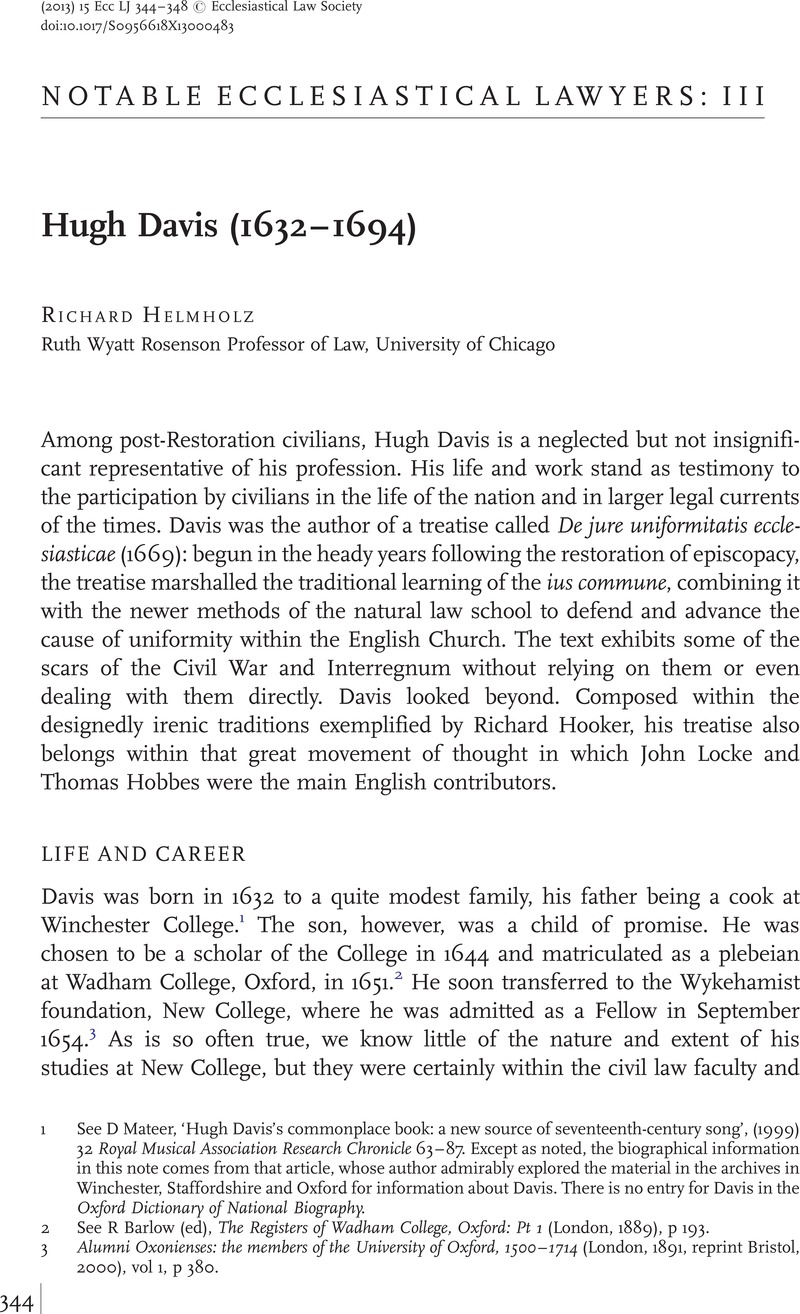No CrossRef data available.
Published online by Cambridge University Press: 15 August 2013

1 See Mateer, D, ‘Hugh Davis's commonplace book: a new source of seventeenth-century song’, (1999) 32 Royal Musical Association Research Chronicle 63–87CrossRefGoogle Scholar. Except as noted, the biographical information in this note comes from that article, whose author admirably explored the material in the archives in Winchester, Staffordshire and Oxford for information about Davis. There is no entry for Davis in the Oxford Dictionary of National Biography.
2 See Barlow, R (ed), The Registers of Wadham College, Oxford: Pt 1 (London, 1889)Google Scholar, p 193.
3 Alumni Oxonienses: the members of the University of Oxford, 1500–1714 (London, 1891Google Scholar, reprint Bristol, 2000), vol 1, p 380.
4 Wilson, J, The Imperial Gazetteer of England and Wales (Edinburgh, 1870–1872)Google Scholar, vol 2, p 604.
5 Davis, H, De iure uniformitatis ecclesiasticae (London, 1669)Google Scholar, Dedication (to Charles II).
6 Ibid, Prolegomena.
7 Ibid.
8 Ibid.
9 Ibid, book I, ch 1, § 13.
10 Ibid, book I, ch 3, § 19.
11 See Robinson, O, Fergus, T and Gordon, W, European Legal History (third edition, Oxford, 2000)Google Scholar, §§ 13.1.1–13.4.6.
12 Eg Cumberland, R, A Treatise of the Laws of Nature, tr Maxwell, J (London, 1727)Google Scholar, Introduction, § II.
13 See the essays in Barducci, M (ed), Grozio ed il pensiero politico e religioso inglese 1632–1678 (Florence, 2010)Google Scholar.
14 Davis, De jure uniformitatis, book II, ch 9, §§ 10–13.
15 Ibid, book I, ch 3, § 3.
16 Ibid, book II, ch 3, § 9.
17 Grotius, Hugo, De iure belli ac pacis libri tres, ed Molhuysen, P (Leiden, 1919)Google Scholar, book I, ch 4, §§ 10–19. See Baumgold, D, Contract Theory in Historical Context: essays on Grotius, Hobbes, and Locke (Leiden and Boston, MA, 2010), pp 27–49CrossRefGoogle Scholar.
18 Davis, De jure uniformitatis, book I, ch 3, §§ 20–21.
19 Ibid, book II, ch 1, § 4.
20 Ibid, book II, ch 2, § 2.